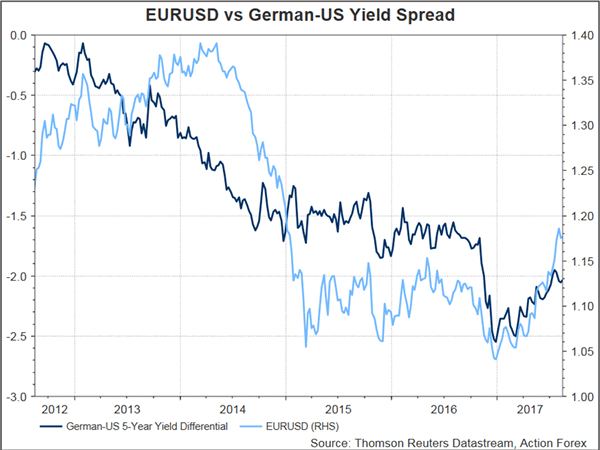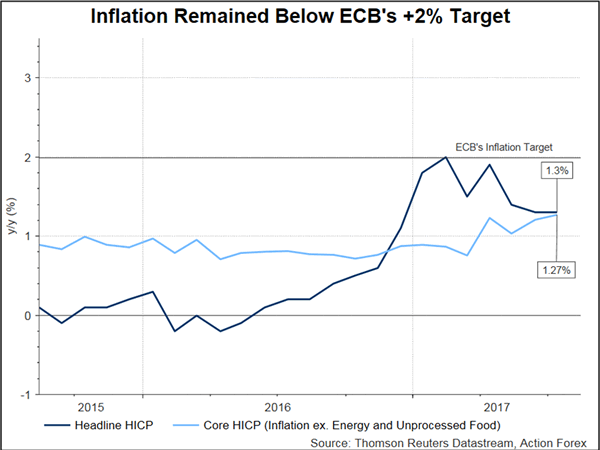ECB’s July minutes voiced concerns over euro’s strength. This is particularly important as the central bank is about to discuss tapering of the asset purchase program. Yet, the members generally agreed that "there was presently a continuing need for steady-handed and persistent monetary policy". The single currency instantly dropped to a 3-week low of 1.1661 against USD, 2-day low of 0.9061 against GBP and 4-day low of 1.1302 against CHF, before recovery.
The central bank expressed the concerns over euro’s appreciation. Policymakers worried about "a possible overshooting in the repricing by financial markets, notably the foreign exchange markets, in the future". They emphasized that "the still favourable financing conditions could not be taken for granted and relied to a considerable extent on a continued high degree of monetary policy support".
On the asset purchase program, the minutes indicated that the members discussed making "incremental" changes to their forward guidance as they believed that "postponing an adjustment for too long could give rise to a misalignment between the Governing Council’s communication and its assessment of the state of the economy". This could "trigger more pronounced volatility in financial markets when communication eventually had to shift". At the post meeting press conference, President Drahghi noted that the discussion of tapering might begin in the fall. In June, the members considered "revisiting the easing bias with respect to the APP purchases, whereby the Governing Council signaled its readiness to increase the pace and/or duration of the asset purchases if necessary". They eventually decided to remain cautious and prudent, and maintain the original language.
Persistently weak inflation remained a concern. Headline CPI stayed unchanged at +1.3% y/y, while core CPI improved for a second consecutive month to +1.27%, in July. However, inflation remained well below ECB’s target of +2%.
We believe ECB would begin the discussion of tapering asset purchases in coming months. The actual timing would be somehow affected by euro’s movement. EURUSD has rallied for 6 consecutive months since March, gaining +11.5%. The momentum has accelerated since June as ECB removed the reference that it would move the interest rates "lower" and Draghi suggested in late June that the Eurozone’s "deflationary forces have been replaced by reflationary ones". During the period, weaker-than-expected inflation and the political drama in the White have also weighed on the greenback. A stronger currency is tightening in nature, making tapering less urgent.


